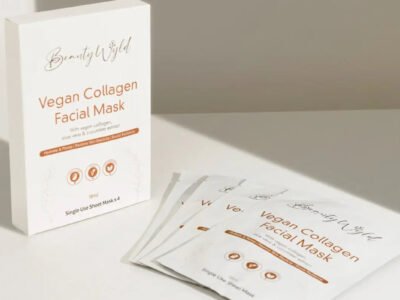How to Choose Vegan and Organic Supplements (2025): Certified Ethical & Transparent Nutrition Guide. Learn how to choose trustworthy vegan and organic supplements in 2025. Discover top vegan certifications (BeVeg, Vegan Society, Vegan Action), organic credentials (USDA, EU Organic), tips for reading ingredient lists, and advice for ensuring ethical, transparent supplement manufacturing.
Choosing vegan and organic supplements requires careful attention to ingredient sourcing, manufacturing processes, and third-party certifications to ensure both ethical standards and product quality. Here’s how to make informed, trustworthy choices:
1. Look for Recognized Vegan Certifications
- BeVeg Vegan Certified: The BeVeg mark is the only vegan symbol internationally recognized by ISO 17065 standards, ensuring strict criteria and independent third-party audits. Products with this certification are guaranteed not to contain any animal-derived ingredients, are not tested on animals, and have rigorous controls to prevent cross-contamination.
- Certified Vegan (Vegan Action): This label ensures supplements contain no animal products or by-products, are not processed with animal-derived substances, and have not been tested on animals since 2009. It also covers details like the use of vegan-friendly cultures for probiotics and bans sugar filtered with bone char.
- Vegan Society Trademark: Brands must minimize cross-contamination and confirm all ingredients and processes are free from animal involvement as far as reasonably practicable.
Tip: Always check for these marks on supplement packaging or product listings for assurance of vegan integrity.
2. Verify Organic Certification
- Choose supplements labeled with reputable organic certifications (such as USDA Organic, EU Organic, or equivalent), which guarantee the ingredients are grown without synthetic pesticides, fertilizers, or GMOs.
- Organic supplements often use cleaner, more sustainable farming practices, benefiting both your health and the environment.
3. Scrutinize Ingredient Lists and Sourcing
- Ensure all ingredients are plant-based and free from hidden animal derivatives (e.g., gelatin capsules, dairy-based probiotics, or animal-sourced vitamin D3).
- For probiotics and prebiotics, confirm they are cultured on vegan media, as required by vegan certification standards.
- Opt for supplements that are transparent about sourcing, ideally using organic, non-GMO, and fair-trade ingredients.
4. Assess Manufacturing Practices
- Reputable brands will detail their manufacturing processes, including cleaning protocols to prevent cross-contamination on shared equipment.
- Look for manufacturers that undergo regular third-party audits and comply with strict vegan and organic handling standards.
5. Avoid Common Non-Vegan Additives
- Steer clear of supplements containing honey, beeswax, gelatin, lanolin (a source of some vitamin D3), or colorants and additives derived from insects or animal products.
- Check for plant-based capsule materials (such as cellulose or pullulan) instead of gelatin.
6. Prioritize Transparency and Accountability
- Brands with credible vegan and organic certifications are typically more transparent, providing detailed information about ingredients, sourcing, and testing.
- Many certification bodies (like BeVeg) maintain public directories of certified products, making it easy to verify claims.
7. Consider Additional Certifications
- Non-GMO Project Verified: Ensures supplements are free from genetically modified organisms.
- Fair Trade: Supports ethical labor and sustainable farming practices.
Check out myGreenDirectory’s sustainable medicine and supplement listings
Barleygrass Juice
Reusable Bamboo Scoop





100% plant-based, ocean-friendly supplements
Broccoli-Celery*-Soursop Refresher
Collagen Face Mask (Box of 4)


Plant-based supplements for health and well-being
Shipping Protection
In summary:
To choose vegan and organic supplements, look for trusted certification marks (such as BeVeg, Vegan Action, or The Vegan Society), verify organic credentials, scrutinize ingredient lists for hidden animal products, and favor brands with transparent, audited manufacturing processes. These steps help ensure your supplements align with both your ethical values and health goals.
Disclaimer
The content provided on MyGreenDirectory.com is for general informational purposes only and does not constitute professional, legal, financial, environmental, or health advice. While we aim to highlight sustainable businesses, products, and services, we encourage all users to independently verify claims, certifications, and practices before making any decisions or purchases.
Some of the links on this site may be affiliate links. This means we may earn a small commission if you click through and make a purchase, at no additional cost to you. These commissions help support the maintenance of the directory, but they do not influence our editorial content or the inclusion of listings.







Comments